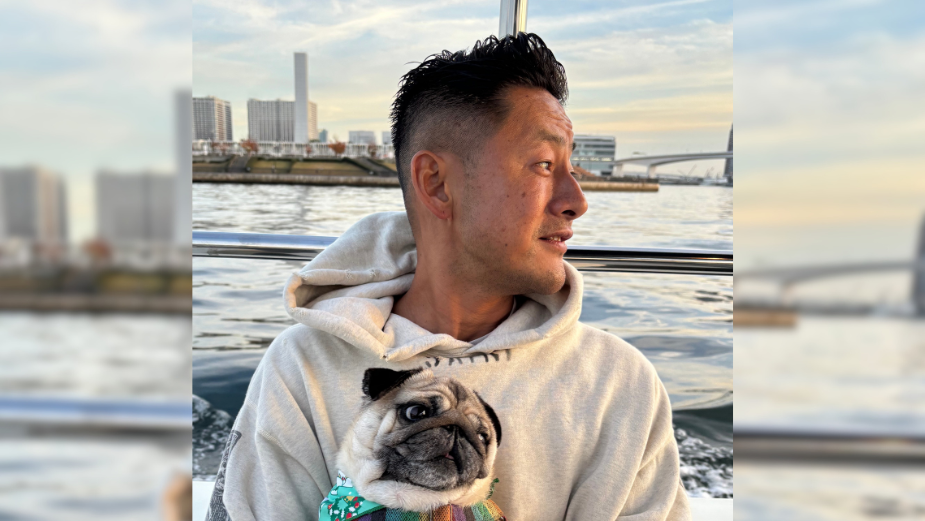
“The Strength of Japanese Directors Is Their Ability to Leave an Impact”

Based in Japan, Hiroshi Kikuchiis best known for his directing work for clients such as Suntory, Lazada and SoftBank. Graduating from Musashino Art University in Tokyo, he went on to join commercial production company AOI Pro before becoming a freelance director.
His favourite style has a comedic edge and his work has won him a string of awards from the likes of NewYorkFestivals, LIA, Adfest and ACC Tokyo Creativity Awards.
In this interview with LBB’s Sunna Coleman, Hiroshi chats about why he finds comedies and plays so inspiring, what makes Japanese advertising unique, and the biggest challenge that Japanese directors face today.
LBB> What first sparked your curiosity for film?
Hiroshi> During my university days, I was a big fan of Spike Jones and Mike Mills.But what really shocked me were the Fanta commercials made by a Japanese commercial director called Shunichiro Miki, and the commercials made by Katsuhito Ishii.I was obsessed with the surreal gags that the two of them made.
From there, I was lucky enough to be able to join AOI Pro, the commercial production company where Shunichiro Miki works, and learn how to direct.
LBB> How would you describe the advertising and film scene in Japan? What is unique to the creative culture?
Hiroshi> I think Japanese people have always had a tendency to like short videos. We have been familiar with short videos since childhood so Japanese advertisements are mainly 15 seconds long, and they compete to see how they can attract people in a short time.
Music makes a stronger impression, and dancing leaves a visual in the mind after viewing. In Japan, there are a lot of techniques packed into a short number of seconds.
LBB> What is your favourite medium or style to shoot in, and why?
Hiroshi> I like comedy shows, so I enjoy it when filming on a fun set where you can hear laughter.
LBB> What’s one of the most memorable projects you’ve worked on?
Hiroshi> The first job I did that became popular wasa commercial for a fitness device called Wonder Core. It was a comedy commercial in which celebrities would fall over in various situations, only to find that they were on fitness equipment, and would end up exercising despite having fallen over. At the end, a giant iron ball swung down and hit the celebrity, which was influenced by a comedy show I watched as a child.
LBB> Who have been some of the most interesting people you have worked with or shot?
Hiroshi> I think it was Takashi Ukaji, a famous Japanese actor who I shot with during Wonder Core. This commercial was a challenge, with a lot of action scenes that wouldn't happen in a normal celebrity shoot, like being splashed with water or hit with an iron ball, so it must have been really tough for the people filming, and for Ukaji-san to act.
I felt the professional spirit of Ukaji-san, who gave his all in every cut of such a difficult shoot. Thanks to his excellent acting, we made it into a series and shot six or seven episodes.
LBB> Who are some of your personal favourite Japanese film talents and why?
Hiroshi> In the advertising industry, I admire commercial directors Shunichiro Miki and Katsuhito Ishii. And in film, the director Juzo Itami. When I was a child, my parents would often watch his films in the living room, and to my child's mind they were so powerful and so adult that they burned themselves into my brain. It's like a trauma, but I've never had such an experience with a film before.
LBB> What do you see as the biggest challenges and opportunities for directors in Japan today?
Hiroshi> Compliance. I think the issue with Japanese advertising is that the range of expression is becoming increasingly narrow.
I think the strength of Japanese directors is that they are good at packing information into a short amount of time and leaving an impact, so I think this is applicable, not only in Japan but also in other Asian countries and abroad.
LBB> What is currently inspiring you and why?
Hiroshi> I love plays or comedy shows. Both are live performances, and the tempo of the conversation is crucial. The way you take that time can make you laugh or be surprised, so it's a learning experience and gives me ideas to think about when I'm making videos.
LBB> Outside of your career, how do you like to express your creativity?
Hiroshi> I would like to try directing a play.















